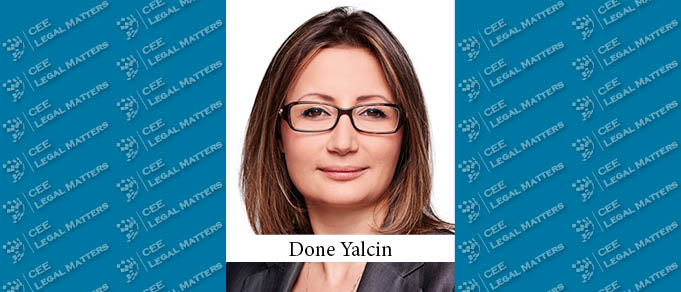As a large country with a population of over 82 million and a comprehensive public and private healthcare system designed to provide an accessible and equitable medical service to each and every person living in Turkey, the potential for every life science-related sector in the country could easily be deemed as advanced.
The COVID-19 pandemic has caused an unexpected transformation of the Turkish and global life sciences sector – particularly in the methods employed to tackle waste management. The domestic production of medicine and medical equipment, personal protective equipment (PPE), and medical and hazardous waste has rocketed over the past year. In Turkey, even though the more settled life sciences sub-sectors such as the one related to the production of medicine and medical equipment have easily adapted to this new era, the management of medical and hazardous waste has faced challenges. Health-related concerns have taken precedence over environmental issues, and waste management has taken a back seat.
The amount of hazardous waste generated by infected persons, the extensive use of medical equipment for tests, vaccinations, treatments, etc., and the excessive use of PPE are significant challenges for the waste management sector. As the COVID-19 pandemic has boosted not only the volume of medical waste but also the amount of hazardous household and plastic waste, proper and efficient waste disposal and waste-management legislation has become crucial for maintaining global sustainability.
As a country which is still attempting to eliminate the irregular management of waste, Turkey faces a considerable threat. The Turkish government has not implemented any structural changes regarding the waste management system during the pandemic, yet, but instead has taken several steps with regard to the micro-management of COVID-related waste. The Ministry of Health published several informative posters, checklists, and brochures emphasizing the importance of separating waste at the source in order to raise awareness and (especially) to ease the handling of waste in waste collection centers.
In April, 2020, the Ministry of Environment and Urbanization, General Directorate of Environmental Management published a “COVID-19 Measures on the Management of Personal Hygiene Waste such as Single Use Masks and Gloves” communiqué, emphasizing that the increased amount of personal hygiene waste must be managed in a more appropriate manner, with instructions given to institutions, establishments and entities, all citizens, municipalities, waste collectors, waste transporters, and waste depos, among others.
Accordingly, all institutions, establishments, and businesses are now obliged, among other things, to: place collection bins at entrances and exits of closed areas to separate waste at the source and collect such waste efficiently; not open the waste bags and/or mix the bags of waste with other waste bags; and ensure that waste bags are delivered to municipalities after they are kept in temporary storage areas for at least 72 hours. Every person who uses masks, gloves, tissues, etc., is instructed to place them, once used, inside untearable plastic bags, tie the bags, and put the bag in another plastic bag as a precaution against tearing.
Unfortunately, in the absence of more structural changes, the limited steps mentioned above are not expected to relieve the existing and potentially large-scale threats. Thus, possible enhancements to the waste management policies and potential investments which would improve the current status could be the main tools for a leap forward in Turkey.
The COVID-19 pandemic, in addition to posing a substantial danger to personal health, is a severe threat to the efforts made to establish an enhanced waste management system in Turkey. With sustainability and transitioning to a low-carbon economy firmly on the political agenda, developing countries could fall behind the waste management performance level they achieved pre-pandemic, particularly in the Life Sciences sector. The significantly increasing daily consumption of plastic and single-use equipment in developed countries is also a threat to accumulated efforts regarding the environment, unless such waste is managed in line with optimal standards. All major actors must take this aspect of the pandemic into consideration and establish a waste management structure with enhanced adaptability for any future health and environmental emergencies.
By Done Yalcin, Managing Partner, CMS Turkey
This Article was originally published in Issue 8.5 of the CEE Legal Matters Magazine. If you would like to receive a hard copy of the magazine, you can subscribe here.


